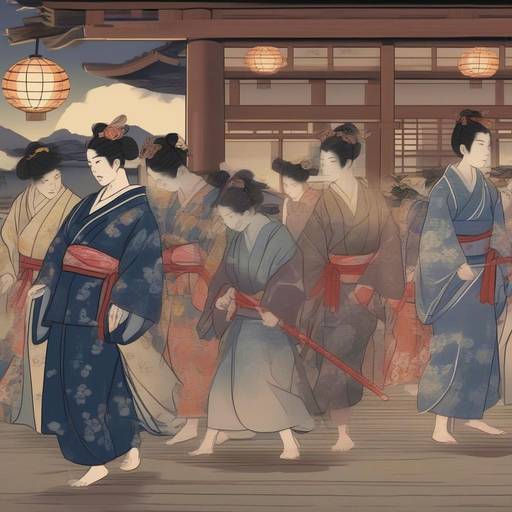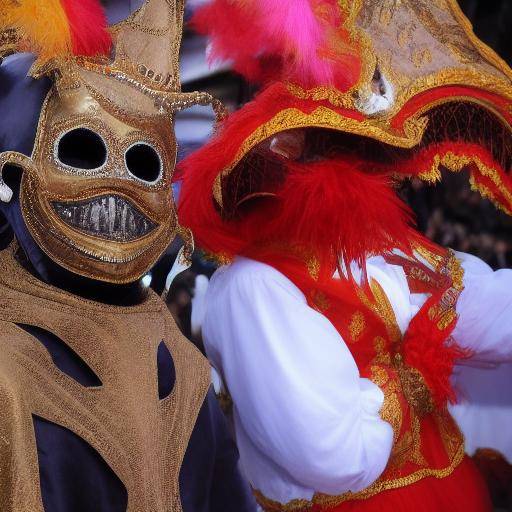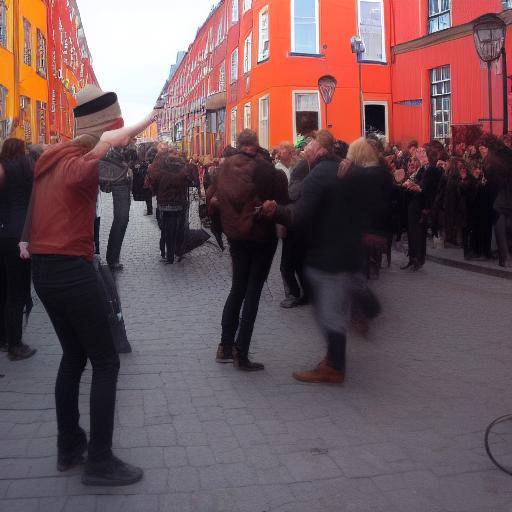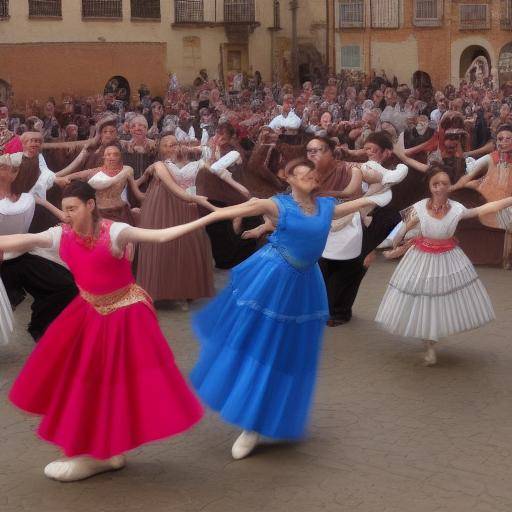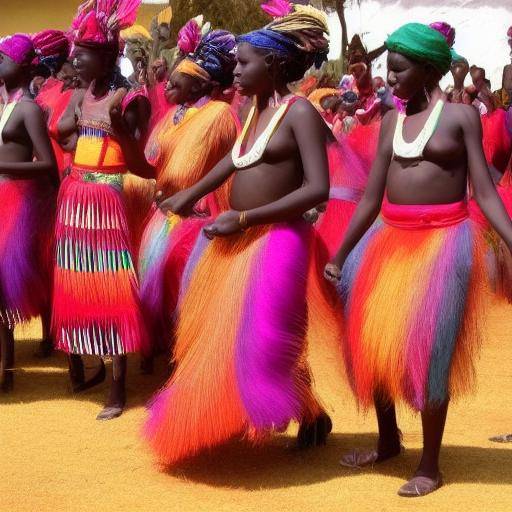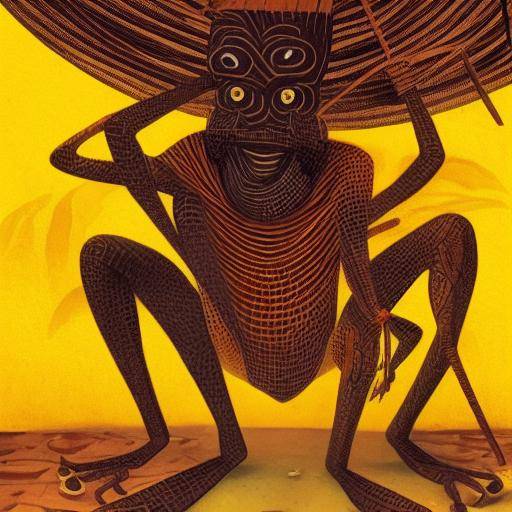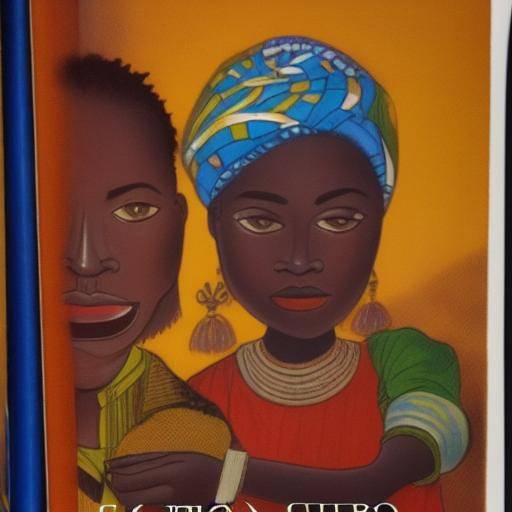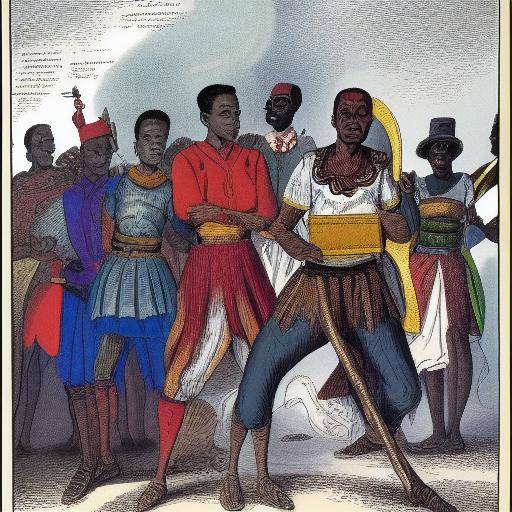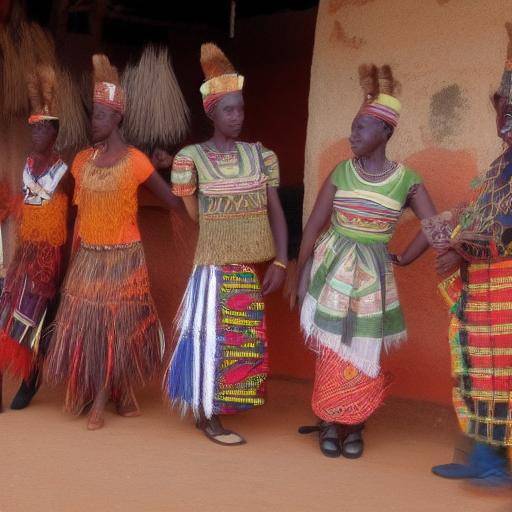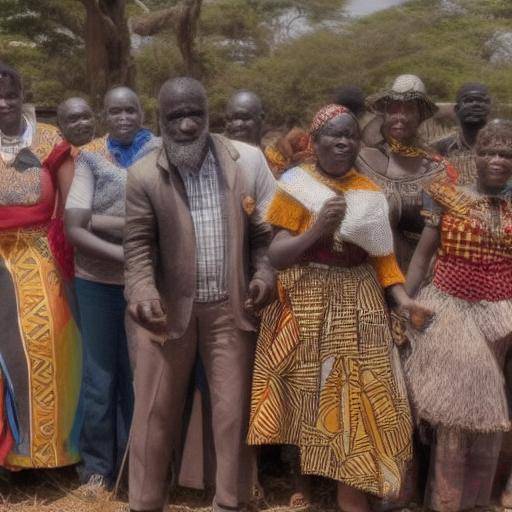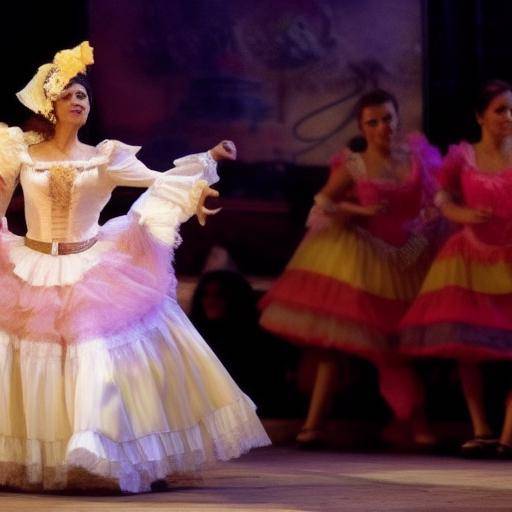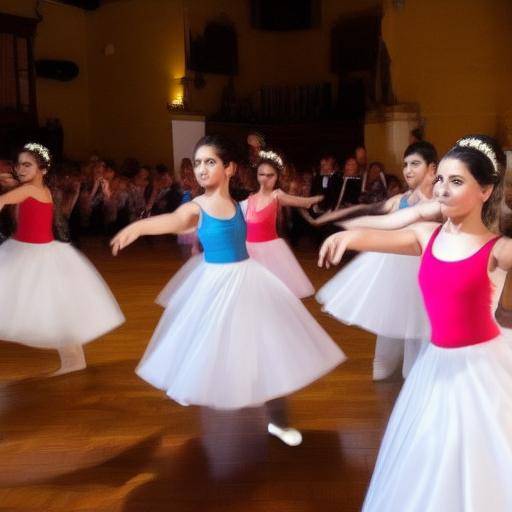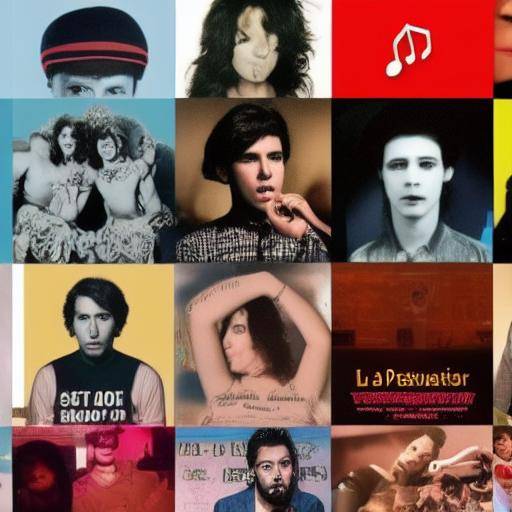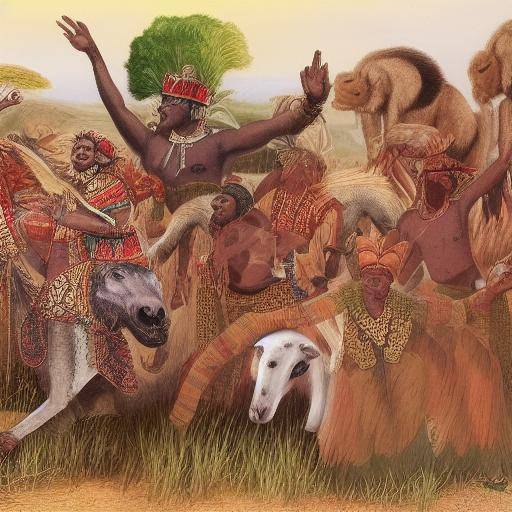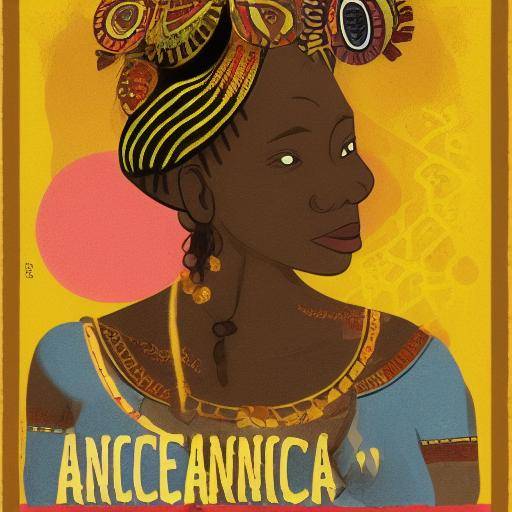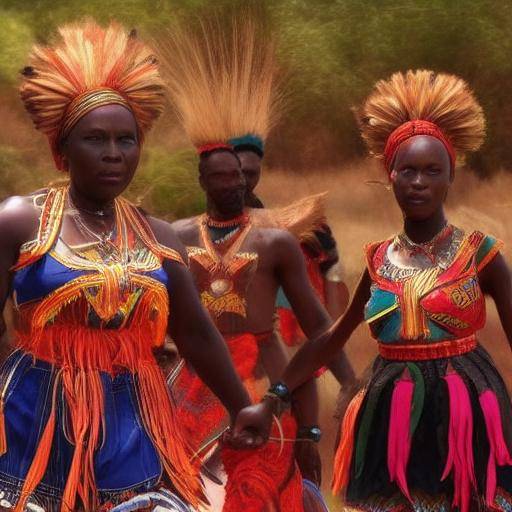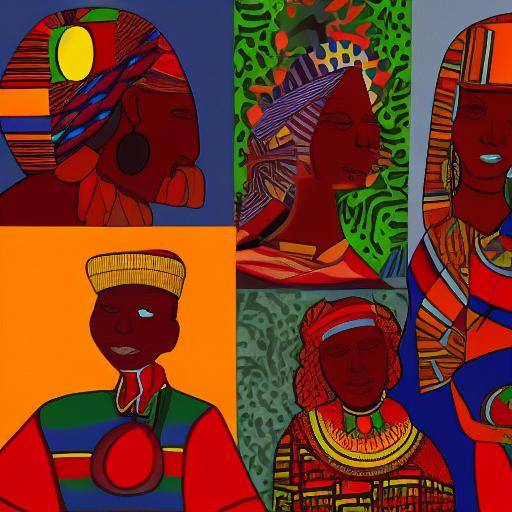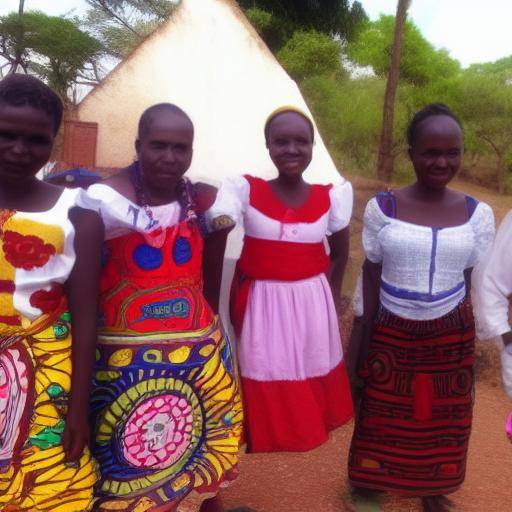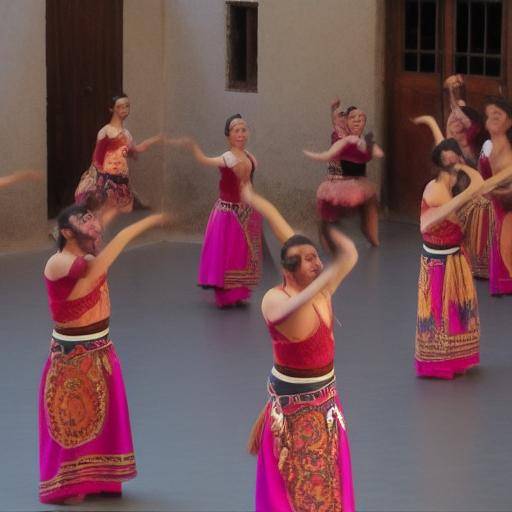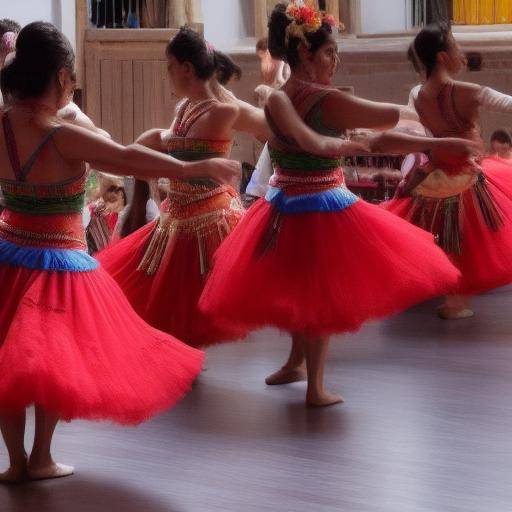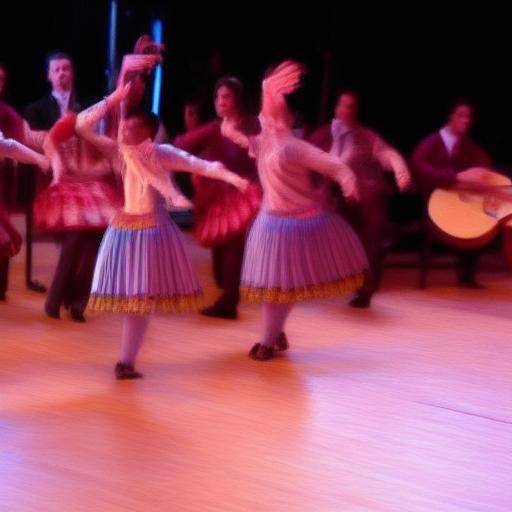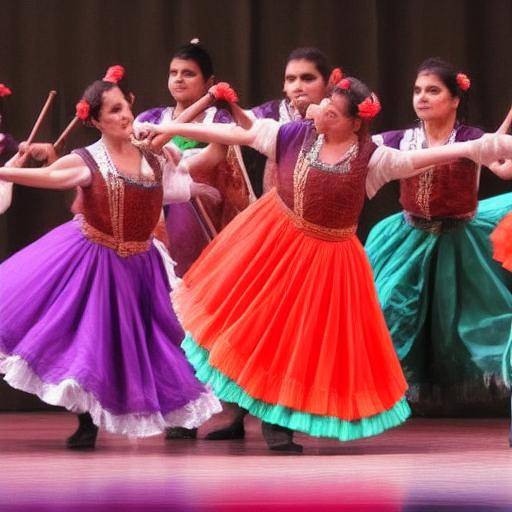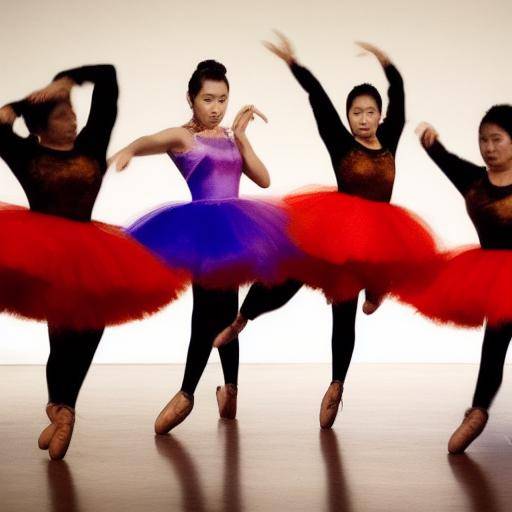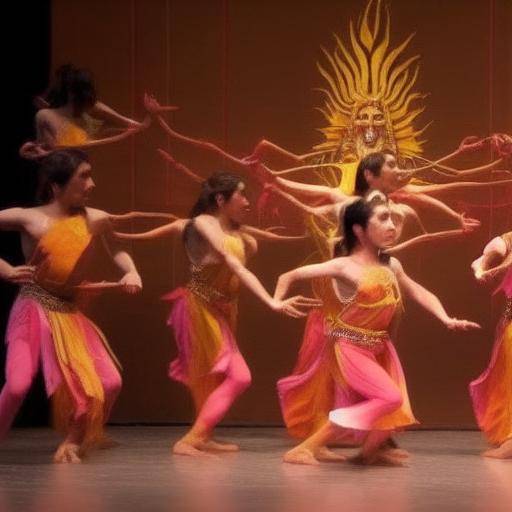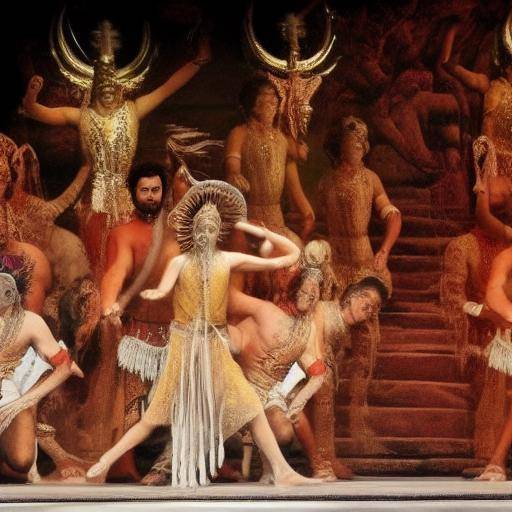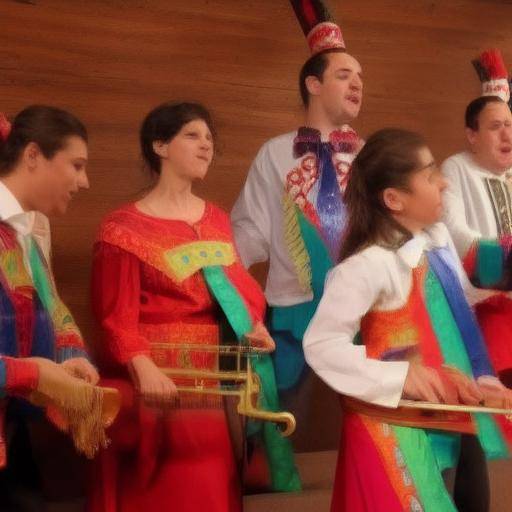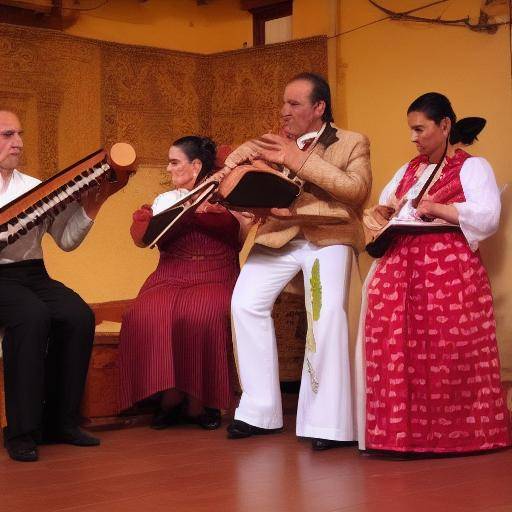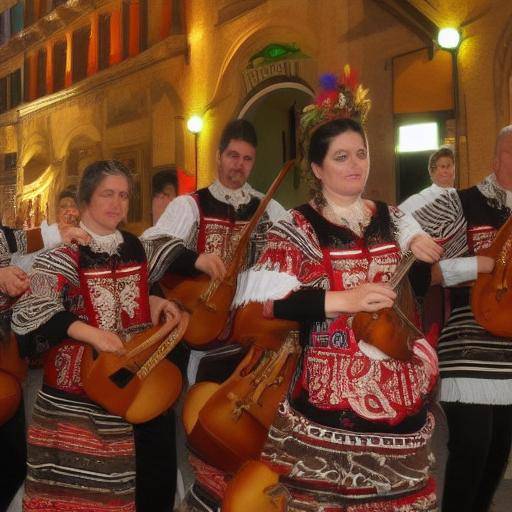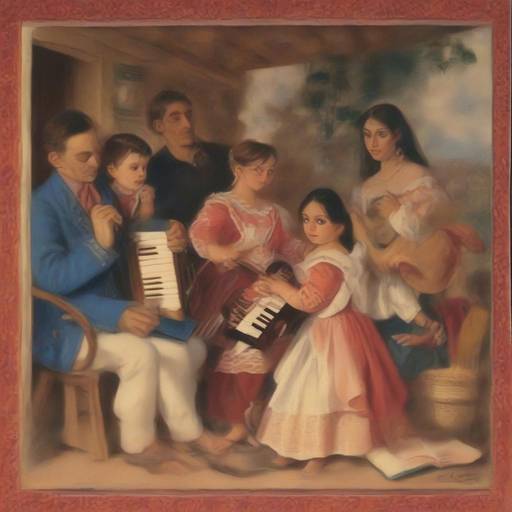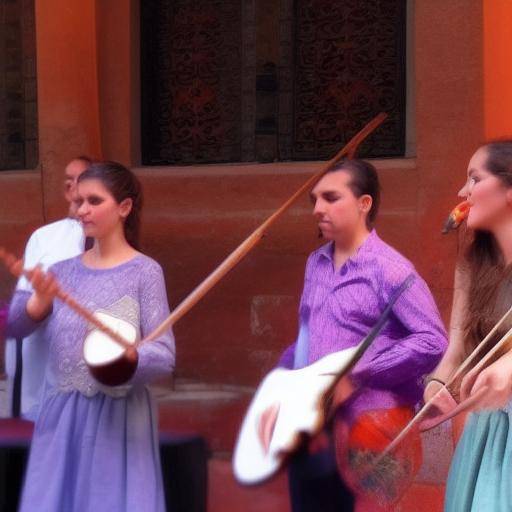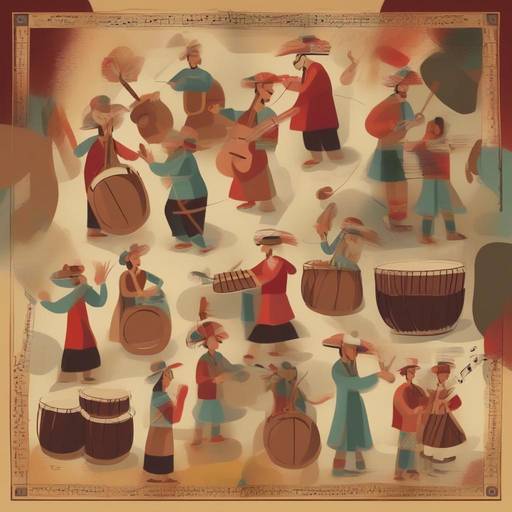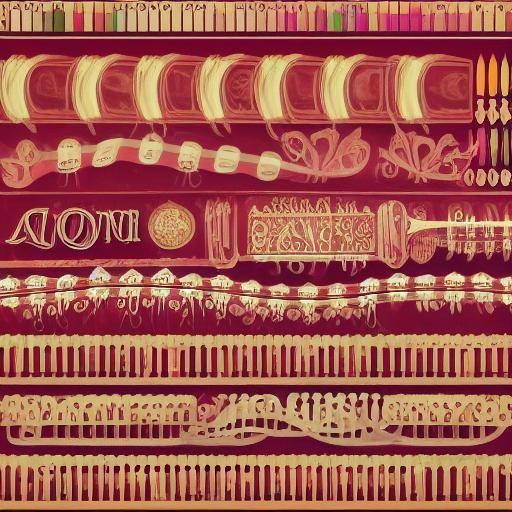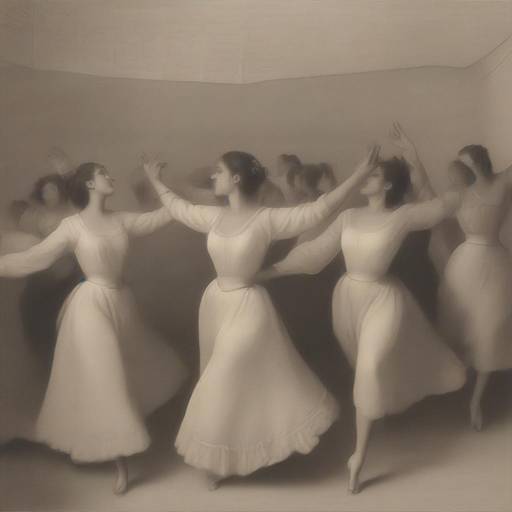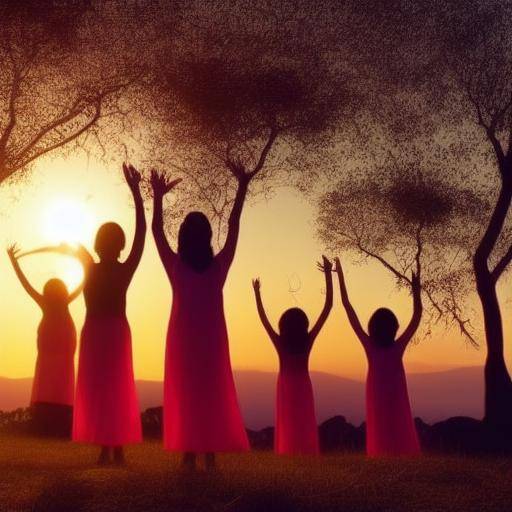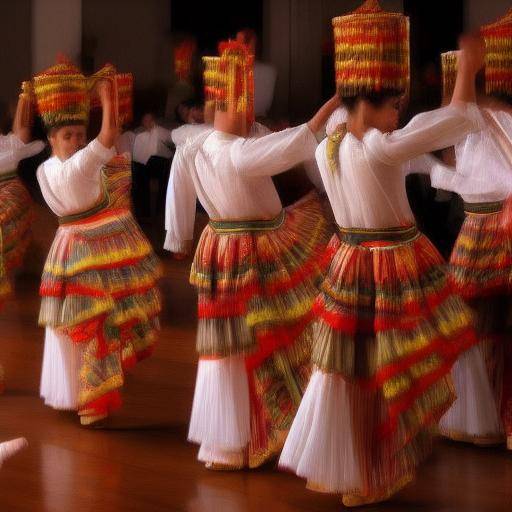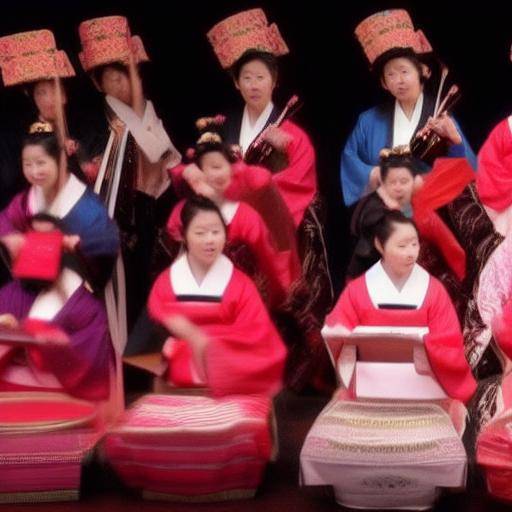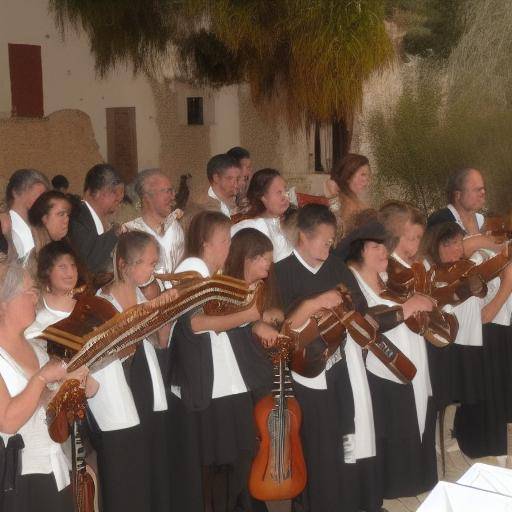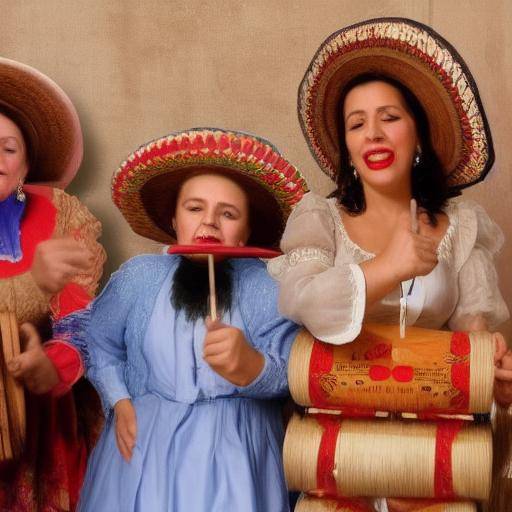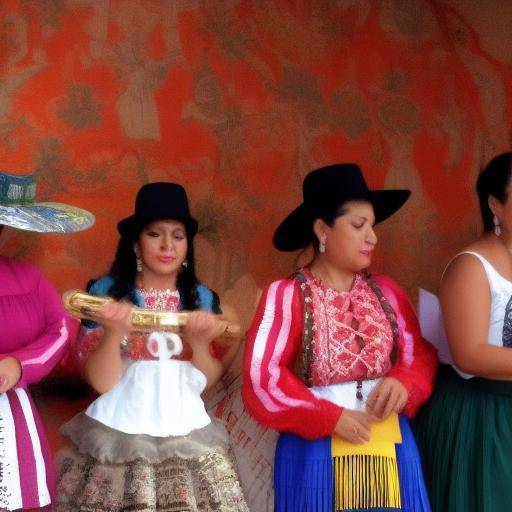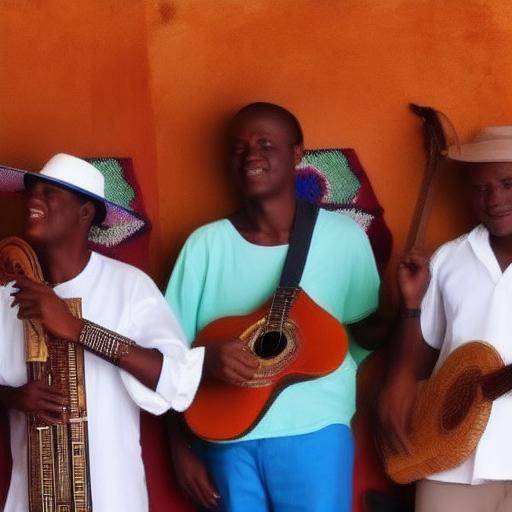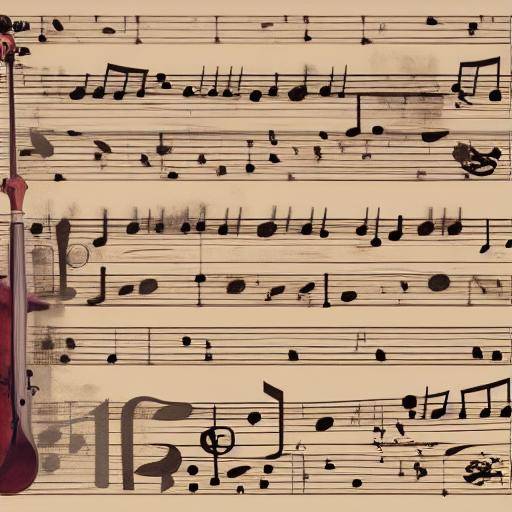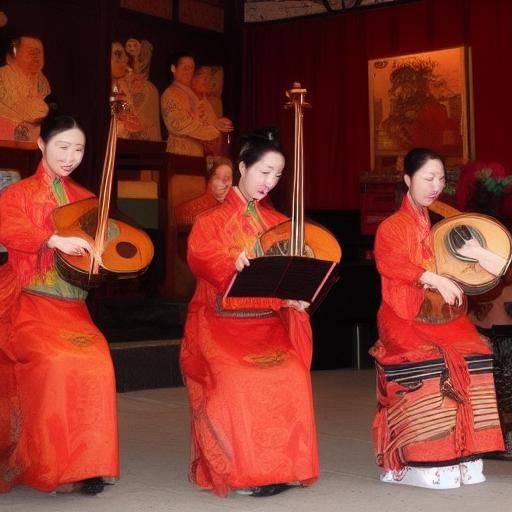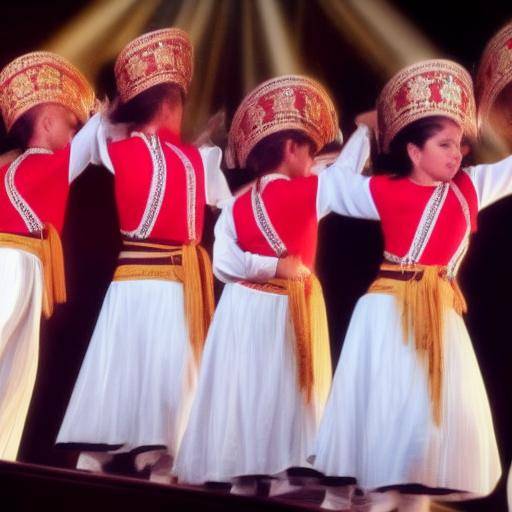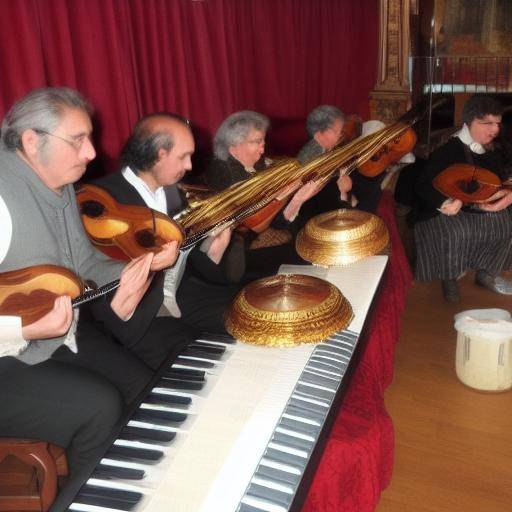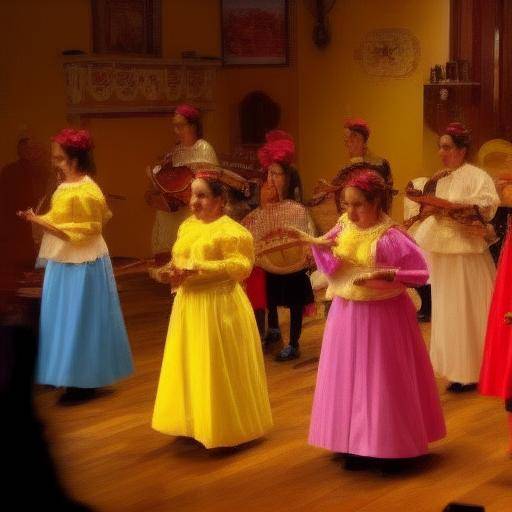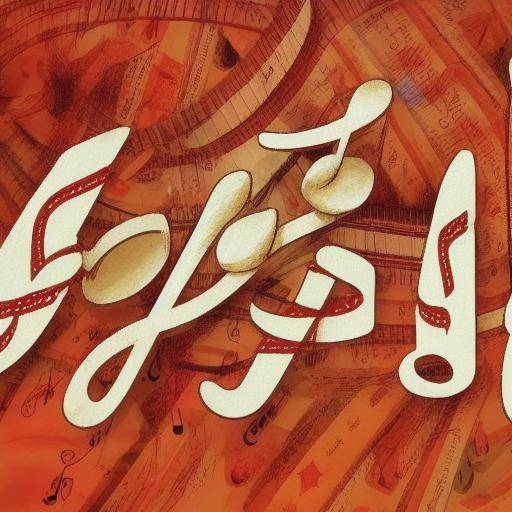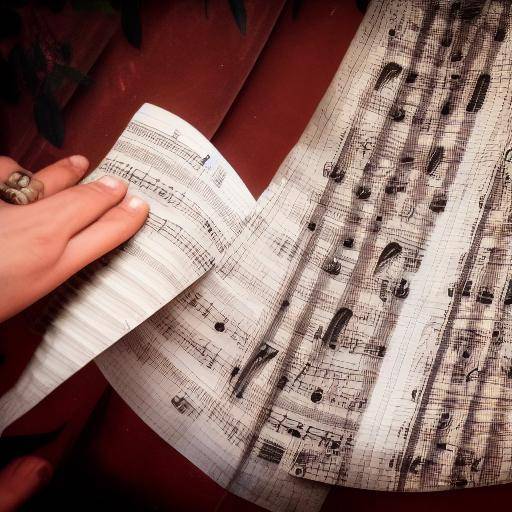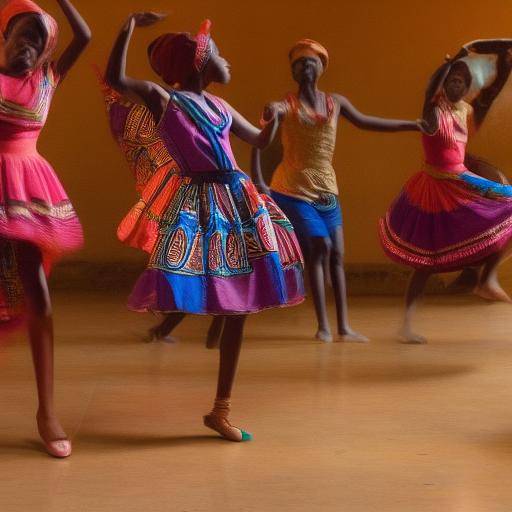
African folklore is a treasure of musical and dance traditions that have enchanted and captivated the public for centuries. The cultural wealth of the African continent is manifested through its music and dance, reflecting the diversity of its peoples, its beliefs, and its history. In this article, we will explore the influence of African folklore on music and dance, as well as its impact on global culture. We will discover the fascinating history, vibrant styles, and the continuous evolution of these artistic practices.
Introduction
African folklore is a vital expression of African indigenous cultures, each with its own distinctive traditions and styles. Through music and dance, stories are transmitted, rituals are celebrated and deep emotions are expressed. From the frenetic rhythms of drums to the elegant and elaborate choreographies, African folklore has influenced countless forms of music and dance around the world. In this article, we will explore the history and evolution of African folklore, as well as its impact on contemporary music and dance.
History and Background
African folklore has deep roots that go back to ancient civilizations and tribal traditions. From rural villages to historical empires, music and dance have played a central role in the daily lives of Africans. Musical and dance traditions are transmitted from generation to generation, serving as media, artistic expression and cultural resistance.
Percussion plays a key role in African music, with a wide variety of drums and other percussion instruments used to create complex and energetic rhythms. Voices, often in harmony, reflect a rich diversity of languages and dialects. The dance, for its part, incorporates movements that are intrinsically linked to music, with steps, twists and gestures that narrate stories and awaken emotions.
In the colonial era, African music and dance suffered the influence of Western culture, leading to new forms of artistic expression that merged local traditions with foreign elements. This cultural interaction has led to unique styles and the creation of new musical genres and forms of dance.
Analysis in Deep
The influence of African folklore on music and dance has transcended continental borders, influencing artists from around the world. The rich diversity of African rhythms, melodies and dance styles has left an indelible mark on contemporary popular music, from jazz and blues to Latin music and hip-hop. The energy and passion of African music and dance continue to inspire musicians and dancers from all cultures.
The African diaspora has brought with it African musical and dance traditions to different parts of the world, enriching the musical and global dance scene. The contribution of African folklore can be seen in festivals, shows and artistic productions on all continents, consolidating their influence and relevance today.
Comprehensive review
African folklore has been the centre of numerous academic research and cultural preservation projects. Organizations and experts in African music and dance strive to ensure the transmission and preservation of these ancestral traditions. In addition, the use of African music and dance as therapeutic and educational tools has demonstrated its power to unite communities and foster self-expression and emotional well-being.
The interest in African folklore has led to international collaborations between musicians, dancers and academics, with cultural exchanges that promote mutual understanding and appreciation of diversity. These initiatives play a role in strengthening and disseminating African folklore, ensuring its legacy for future generations.
Comparative analysis
African music and dance exhibit a remarkable regional diversity, each with its own distinctive styles and cultural meanings. From the vigorous rhythm of the djembe in West Africa to the elegant movements of the gumboot in South Africa, the wealth and variety of African folklore in music and dance are impressive. Although each region has its own traditions, there is an underlying connection that unites these forms of expression, reflecting the rich shared cultural heritage of the African continent.
Practical Tips and Accessible Tips
If you want to explore African folklore in music and dance, here are some practical tips:
- Find local cultural events where African music and dance performances are presented.
- Learn about the musical and dance traditions of a specific African region to understand its cultural context.
- Participate in African percussion classes or traditional dance to directly experience the forms of African artistic expression.
Industry Perspectives and Expert Reviews
African music and dance experts agree that African folklore plays a key role in preserving cultural identity and promoting global diversity. They emphasize the importance of recognizing, respecting and appreciating African musical and dance traditions, as well as fostering intercultural collaboration to enrich the world art scene.
According to experts, African folklore in music and dance will continue to influence creativity and artistic innovation globally, inspiring new generations of artists to explore and celebrate Africa's rich cultural heritage.
Case Studies and Applications in Real Life
An outstanding example of the influence of African folklore on contemporary music is the incorporation of African rhythms and percussion patterns into various musical genres. Bands and artists have adopted elements of African folklore, merging them with their own styles to create original works that honor the African tradition.
In the area of dance, companies and renowned choreographers have explored and reinterpreted African dance movements and styles, integrating them into contemporary productions that extend the narrative and aesthetics of global dance.
Future Trends and Predictions
As globalization and cultural exchange continue, African folklore in music and dance is expected to play an increasingly influential role in the world art scene. Collaboration between African artists and other cultures is expected to result in new forms of artistic expression that combine the traditional with the contemporary. In addition, there is greater recognition and appreciation of the diversity and authenticity of African musical and dance traditions around the world.
Conclusion
African folklore in music and dance represents an inexhaustible source of inspiration, creativity and cultural connection. Through its vibrant rhythms, captivating melodies and emotional movements, African folklore continues to enrich and diversify the global artistic panorama. In assessing and celebrating African cultural heritage, we contribute to a more inclusive and enriching world for present and future generations.
Frequently asked questions
What is the importance of African folklore in music and dance?
African folklore in music and dance is fundamental to preserving cultural identity and promoting global diversity. Through its artistic expressions, African folklore enriches the world dance and musical scene.
What are some outstanding examples of African music and dance?
African music encompasses a wide variety of genres, from Africanbeat and West African highlife to Congolese rumba and South African mbaqanga. As for African dance, styles such as gumboot, soku, and azone stand out, each with their own cultural traditions and meanings.
How can I learn more about African folklore in music and dance?
You can expand your understanding of African folklore by participating in African music and dance classes, attending live performances and reading about the history and evolution of African music and dance.
What is the impact of African folklore on contemporary folk music?
African folklore has significantly influenced contemporary popular music, providing rhythms, melodies and dance styles that have enriched the diversity and authenticity of the global music scene.
Is it expected that African folklore in music and dance will have a greater impact on the future?
Yes, experts and analysts agree that African folklore in music and dance will continue to play a key role in the world art scene, enriching creativity and cultural diversity.
Are there opportunities to collaborate with African artists in the field of music and dance?
Yes, collaboration with African artists provides an opportunity to explore new perspectives and cultural elements in music and dance, enriching the creative process and fostering intercultural understanding.
What role do educational and cultural institutions play in the preservation of African folklore?
Educational and cultural institutions play a crucial role in the preservation and dissemination of African folklore, through educational programs, cultural events and research projects that promote the knowledge and appreciation of African musical and dance traditions.
With these answers, we hope to have clarified your doubts about African folklore in music and dance, and we invite you to further explore this fascinating and enriching dimension of African culture.
In short, African folklore in music and dance is an invaluable cultural treasure that has transcended borders and enriched the global art scene. Its influence persists in contemporary music and dance, inspiring artists and audiences from around the world. In understanding and appreciating the richness of African folklore, we contribute to the promotion of diversity and unity through art.

